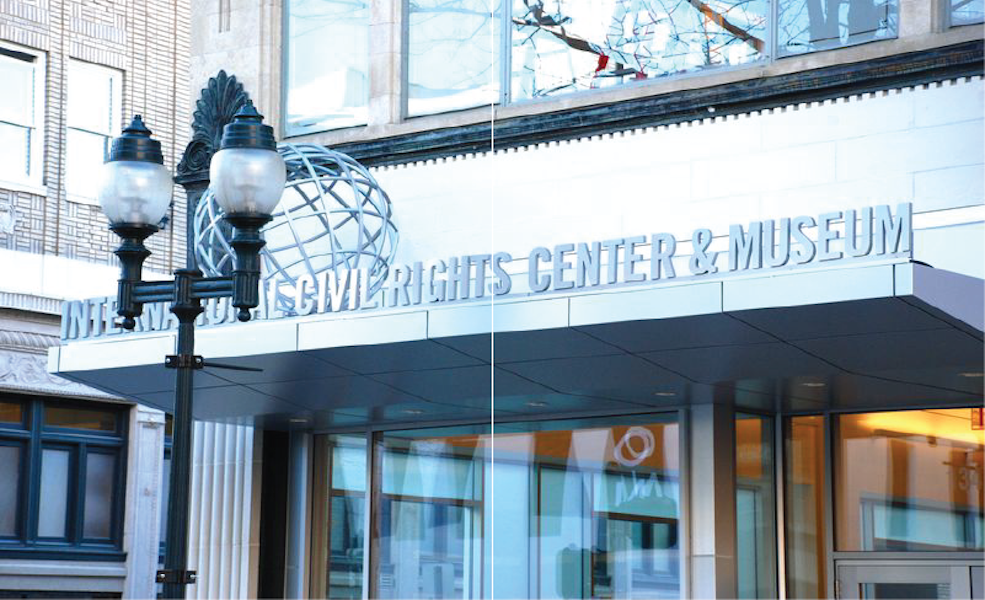Exhibition & Events
States of Incarceration UNCG Opening Reception with Open Mic Event
International Civil Rights Center & Museum
134 South Elm Street
Greensboro, NC 27401
Opening Reception & Open Mic Night: A creative outlet to share experiences and feelings on mass incarceration. If you wish to perform, contact arlucas@uncg.edu.
Refreshments Served.
UNCG Local Focus:
In the early 1900s, courts sentenced prisoners to pound rocks and shovel dirt. Convicted of minor crimes, these men built North Carolina’s highways. The Good Roads Movement in the 1910s promoted the construction of modern highways to facilitate commerce and tourism. Progressive reformers, appalled by abuses in convict leasing to private industries, urged the state to use prisoners to build roads. North Carolina’s state government refused to oversee highway construction and left the administration of chain gangs to county governments. County employees, unconcerned with prisoners’ welfare, kept them in filthy camps and cages, refused them medical care, and beat them without mercy. investigations of the brutal treatment of chain gang prisoners. Prisoners and their families, aware of Johnson’s interest, wrote scores of letters to her and Governor Thomas Bickett, to document their experiences and advocate for change. Prisoner appeals did not produce immediate results, but they influenced the state’s decision to assume control of highway construction during the Great Depression. Dozens of county prisons were constructed in the 1930s to house convicts, removing them from the unregulated county labor camps. As a result, sanitary conditions improved slightly and physical abuse slowly declined.
In the 1920s, social workers in the North Carolina State Board of Charities, headed by Kate Johnson, initiated investigations of the brutal treatment of chain gang prisoners. Prisoners and their families, aware of Johnson’s interest, wrote scores of letters to her and Governor Thomas Bickett, to document their experiences and advocate for change.
Prisoner appeals did not produce immediate results, but they influenced the state’s decision to assume control of highway construction during the Great Depression. Dozens of county prisons were constructed in the 1930s to house convicts, removing them from the unregulated county labor camps. As a result, sanitary conditions improved slightly and physical abuse slowly declined.
North Carolina continued to use chain gangs on roads until the 1970s.
International Civil Rights Center & Museum
134 South Elm Street
Greensboro, NC 27401
